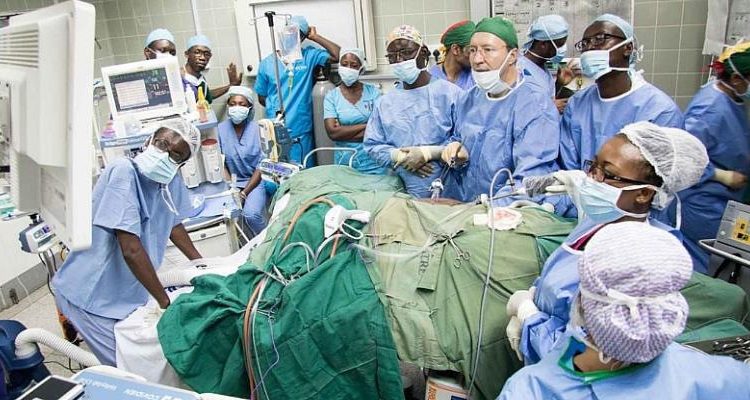The Korle Bu Teaching Hospital, Ghana’s premier medical facility, has successfully performed four kidney transplants.
It carried out the transplantation in partnership with Transplant Links UK, DGN Online gathered.
Three of the patients are believed to be males and one female.
Report from the health facility says the patients are doing well after the transplants.
Donors for each of the four transplants, according to Korle Bu, were family members who were said to be healthy.
This gives the person who receives the donated kidney the chance to return to a normal life away from a kidney dialysis machine.
The donor operation is carried out through a keyhole surgery technique, which means that they do not have to spend long hours in hospital after the operation.
Each donor, this portal gathered, was assessed before the operation to make sure that they are fit and well, and able to safely donate one of their kidneys.
The donated kidney was then implanted into the relative with kidney failure, who has to take medications to prevent rejection.
Kidney failure is common in Ghana, and is often caused by high blood pressure or diabetes.
Without a transplant, a patient with end-stage kidney failure must rely on many hours of kidney dialysis per week to survive.
The Transplant Links team have worked with the Korle Bu Hospital since 2008 and many patients have already benefited.
The First Sky Group fully funded the accommodation, feeding and airfare of the transplant team from UK.
The First Sky Group has since December 2016, donated GH¢ 11 million and a brand-new Toyota Hilux pickup to the Renal Dialysis Unit.
This donation has benefited thousands of patients receiving free dialysis every week.
The transplant team at KBTH was led by surgeons Dr. Bernard Morton and Dr. James Edward Mensah and kidney specialists, Dr. Vincent Bioma and Dr. Dwomoa Adu.
The Chief Executive of the Hospital, Dr. Daniel Asare who revived the kidney transplant programme said the objective of the revival was to build local capacity so that kidney transplant becomes a routine procedure that our surgeons perform.
By Melvin Tarlue

